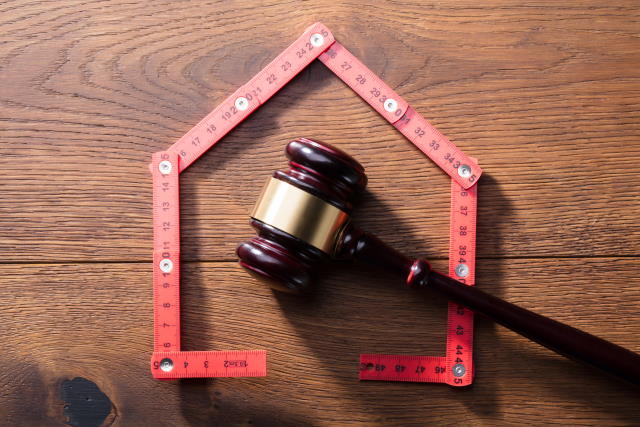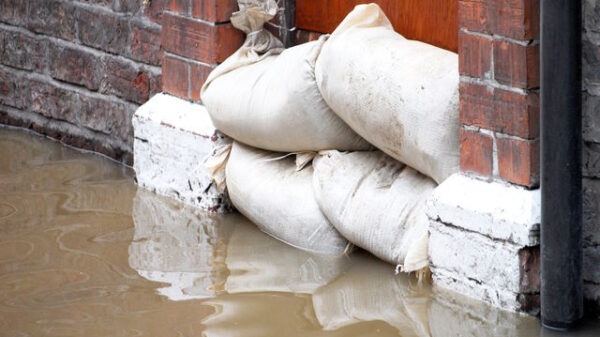Buying a house at auction can be a great way of securing a home at a potentially lower price than the market value.
This is why many people in the UK look for house auctions to visit with a view to buying a property this way, whether to live in or renovate and sell for a profit.
Not only can you sometimes save yourself a bundle of cash, but it can be an extremely quick way of buying a house compared to the traditional route.
House auctions have become so popular that there are even several TV shows that follow people as they bid on properties at auction.
However, it can also be a daunting process for first-time buyers.
Here, I’ll provide you with a step-by-step guide to the process of buying a house at auction, how to find houses that are up for auction and help you understand what to expect.
Research the area and local property auction houses
The first step is to buying a house at auction is to research the area that you’re interested.
Once you’ve found a property – or properties – that you like, find the local auction house that’s handling the sale.
You can find a list of upcoming auctions on auction house websites by doing a Google search, as well as in local newspapers and property magazines – more on this later.
Make sure you read the auction catalogue carefully to get a sense of the properties that are being offered, their condition, and any special conditions or requirements for the sale.
You’ll also get a feel for the prices in a specific area which you should then compare to similar properties being advertised on mainstream property websites such as Rightmove.
This will help you get an idea of where your budget should sit in order to buy the property, carry out any necessary repairs and still make a profit after all the necessary expenses are covered if that’s what you’re looking to do.
Arrange finance
Before you even consider going to a property auction or bidding, you need to arrange your finance.
This means getting a mortgage pre-approved or ensuring you have the funds available to complete the purchase.
You may need to provide proof of your finances to the auction house before you’re allowed to bid, so make sure to have your paperwork in order and with you on the day of the auction.
Also, ensure you’ve budgeted for the auction house’s fee as well. This is a rookie mistake that sometimes takes people by surprise.
View the property
It’s essential to view the property you’re interested in before the auction, although some people do make blind bids.
However, these are usually professionals who know a specific area well and are well versed in the type of property they’re bidding on and the likely issues that will arise with it.
If you’re new to the world of property auctions you’ll need to take a thorough look around the property to ensure it’s right for you.
You should make note of any repairs or renovations that need to be done and estimate the costs involved.
This information will help you determine how much you should bid for the property to ensure you stay within budget.
You should also check for any outstanding debts against the property and consider hiring a surveyor to check the property over before the auction.
If you’ve got a mate who’s a builder willing to go along with you then this is an added bonus, especially if you’re looking at renovation projects.
Hire a solicitor to check out the property documents
This isn’t an essential step, but it’s one that could save you a headache – and a bundle of cash – further down the line.
In most cases you can request a copy of the legal documents that accompany properties going up for auction.
A qualified conveyancing solicitor will be able to spot anything nasty lurking within, such as covenants or caveats that could be costly.
Attend the auction
On the day of the auction, make sure to arrive early and register with the auction house.
You’ll need to prove your identity when you arrive, usually with two forms of official ID, before being given a bidding number, which you’ll use to bid on the property.
As I’ve already mentioned, in some cases you may be asked to provide financial information to the auction house to prove that you have the means to pay for any property that you bid on and win.
When the auction starts, listen carefully to the auctioneer’s instructions and be aware of any special conditions or requirements for each property.
Be clear on the guide and reserve price. The reserve price is the lowest the property can sell for, but is usually not revealed. The guide price can indicate where the reserve price sits.
Bear in mind that the final selling price may be much higher than the guide price and this often takes new buyers by surprise as they think this is the amount – give or take – that the property will sell for.
Also, look out for any last minute changes made to a property’s details, known as an Addendum. This should be issued when you arrive but may be announced by the auctioneer.
Make your bid
When the property you’re interested in comes up for auction, make your bid confidently and clearly while clearly displaying the bidding number you’ve been given.
Don’t be afraid to start with a low bid, as this may encourage other bidders to join in.
However, make sure you don’t exceed your budget and stick to your pre-planned limit.
It’s easy to get carried away by the occasion, especially if it’s a property that you’re really keen on.
That’s why it’s important to set a limit before you bid and discipline yourself to stick to it, no matter what happens.
Of course, in the heat of the moment, this is easier said than done and I’ve certainly been guilty of over-bidding in the past!
Property auctions (and other types) have been increasingly moving online for many years and this is now a popular way of buying property that’s often carried out with the help of an estate agent.
Complete the purchase
If your bid is successful, you’ll need to pay a deposit immediately (usually around 10% of the purchase price).
You’ll also need to sign the contract, which outlines the terms and conditions of the sale.
You’ll be given a set period to complete the purchase which can vary from a fortnight to as much as six weeks, during which time you’ll need to pay the remaining balance and any associated fees.
Auction houses also charge a fee for conducting the sale of each property so make sure you budget for this.
What happens to unsold auction properties?
If a property fails to reach its reserve price or fails to sell for some other reason then in some cases it’s possible for the auctioneer to sell it to you after the sale.
This can happen when the auctioneer has been given this authority by the property owner.
How much does it cost to buy a house at auction?
For each sale the auction house will charge a fee, usually under the heading of ‘administration fee’.
This varies from company to company, but is usually in the region of £250-£350.
Once you’ve found a property you’re interested in and located the auction house that’s selling it, check what their fees are before bidding.
This way you’ll avoid any shock expenses that you haven’t budgeted for.
Remember to factor in the other costs involved, including getting a home survey, hiring a conveyancing solicitor and the Stamp Duty that will be due on the property.
Planning ahead and carefully managing your budget are key to any successful house purchase.
How to find a property auction
There are dozens of resources online that will help you to buy a house at auction in the UK.
One very useful website is UK Auction List which offers a wealth of information about properties that are coming up for auction and where the auction houses are located.
It also helps those with a house to sell get an idea of what their property may be worth if it was sold at auction.
However, it’s a subscription website so you’ll have to pay to use it. At the time of writing the cost was £9.95 per monthly with no commitment to sign up for longer.
The Home Owners Alliance is another useful research tool when it comes to property auctions and all things related to buying and selling houses.
How to buy a house at auction without cash?
Many people assume that buying a property at auction requires cash up front, which can be a barrier for many buyers.
Fortunately, there are options available for those who don’t have the cash on hand to purchase a property at auction.
Firstly, it’s important to note that most auction houses in the UK will require a deposit on the day of the auction, which is usually 10% of the purchase price.
This deposit must be paid immediately if you are the winning bidder and there’s no avoiding this.
So if you haven’t got this to hand on the day of the auction you won’t be able to bid on any properties.
However, it doesn’t have to be cold hard cash – this deposit can be paid using a variety of methods, including debit or credit card, or a banker’s draft.
Then, if you don’t have the full purchase amount available, you can consider using a mortgage to finance the property, although this will have to be arranged in advance.
Some mortgage lenders will provide a mortgage in principle, which is essentially an agreement in advance of the auction that the lender will lend you a certain amount of money to purchase a property.
This can be useful as it provides an idea of how much you can afford to bid on a property and can also speed up the process after the auction.
It’s important to do your research and find a mortgage lender who is willing to lend for auction purchases, as some lenders may have restrictions or requirements that need to be met before they will lend.
You should also be aware that mortgages for auction purchases can be more expensive than traditional mortgages, so it’s important to factor in these costs when considering your options.
How do I use a bridging loan to finance an auction property?
Another option is to consider using a bridging loan to finance the purchase.
Bridging loans are short-term loans that can be used to bridge the gap between the purchase of a new property and the sale of an existing property.
This can be a useful option for those who are looking to buy a property at auction but haven’t yet sold their existing property.
Bridging loans can be more expensive than traditional mortgages, with higher interest rates and fees, so it’s important to factor in these costs.
You should also be aware that bridging loans are usually only available for a short period of time, typically between six months and a year, so it’s important to have a plan in place to repay the loan within this timeframe.
Conclusion
Buying a house at auction in the UK can be a great way to secure a property at a potentially lower price than the market value.
However, it’s important to do your research and arrange your finance to ensure a successful experience.
Bidding for a property at auction might seem daunting at first but there are loads of free resources online that you can study beforehand to enable you to feel confident on the day.
You may also like: How to buy a house without a mortgage











